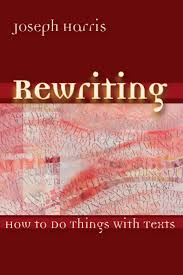Henry Doss is an alumnus of UNC Charlotte where he received his BA in English in 1977. During his three years here at UNC Charlotte, Doss and a few of his peers founded the Writing Resources Center that we all know and love today. After graduation, he went into banking for several years before joining T2 Venture Creation, a firm that works with startup companies, as Chief Strategy Officer. Doss is also a regular contributor to Forbes magazine. Doss continues to be involved on campus, serving as Executive-in-Residence for the college of Liberal Arts and Sciences.
In order to delve into the WRC’s history a bit more, we caught up with Doss this spring to ask him a few questions.
Happy Writing!
Alex and Beth
———————————————————————————————————-
Q: Was there a specific incident that really got you thinking about having a place where your fellow students could get help with their writing?
A: I don’t recall any particular event, except that over time it seemed to be clear that there was some kind of need for helping students with writing. I was taking classes with Sam Watson, and I recall a great deal of conversation about writing, how to write, how not to write, how to think about writing, and how really, really mysterious the whole thing seemed to be. I read Peter Elbow’s Writing without Teachers at that time and it made a deep impression on me. This was in 1976! It occurred to me that it was possible that: 1) writing could be learned and 2) learned in ways that were not in general practice at that time. This wasn’t exactly novel or new, but was just Elbow’s ideas and thinking transplanted into our environment at the time. but it was a pretty powerful idea, all the same.
Q: When you started the WRC, did you have any long term goals? Did you imagine that the WRC would take off and expand to become what it is for UNC Charlotte today?
A: I don’t think any of us were thinking very long term. Our situation was immediate, tactical and focused on the present. We were thinking at a very simple level; it really was a very idealistic and kind of fuzzy thing, but it just happened to be grounded in some decent pedagogy and thinking. It did take a while to catch on, but in those early days we were as much concerned with getting a door key and chairs as with anything else. And although I can’t speak for others, I don’t recall thinking much beyond just getting started with something.
Q: What was the most important thing that you wanted to accomplish by creating the WRC? Is that quality still a part of today’s WRC?
A: This is more personal than anything else, but what I thought was important was to simply introduce to others that writing:
- was (and is) really, really hard
- that it will always be a bit of a mystery, and something that comes from the individual more than from anyone else
- that like-minded strugglers could get together and talk their way into insights about their own and others’ writing
- that the goal of writers was to do good writing, not necessarily to follow conventions (although an honest rejection of convention does, I think, require a strong understanding of convention)
- that writing was (and is) more than anything a process of discovery and not a product
- that all writing fails and fails and fails before it succeeds and that understanding failure in writing was more important (and harder!) than understanding success
- and that when you come right down to it, reflection, conversation and “play” are the most critical things to practice, as you approach the task of becoming a better writer.
Of all that, I think it’s most important to recognize that writing is not always an end product, but a way of learning. As we used to say: “You write from what you know into what you don’t know.” I’ve always liked that, and I think today’s writing tutors, WRC team and others who are serious about the craft of writing think in similar ways.


